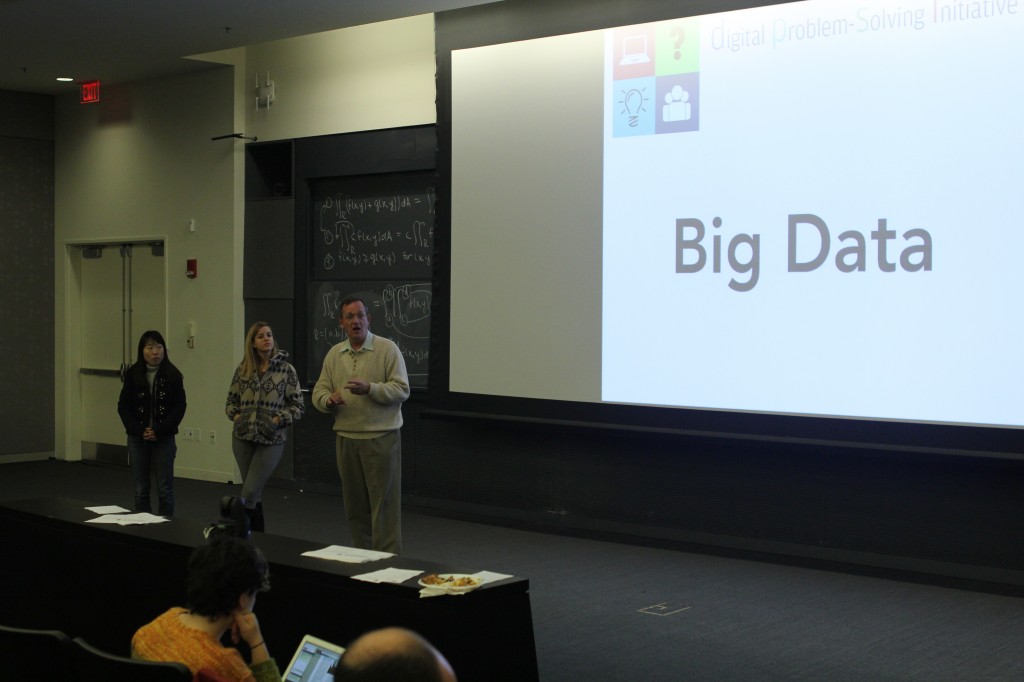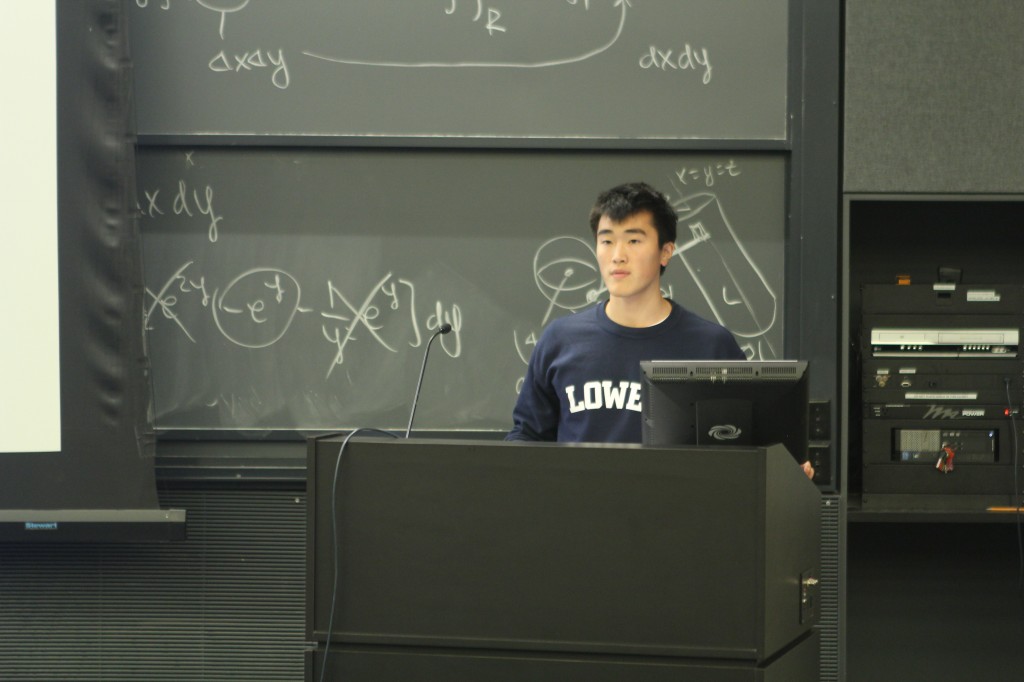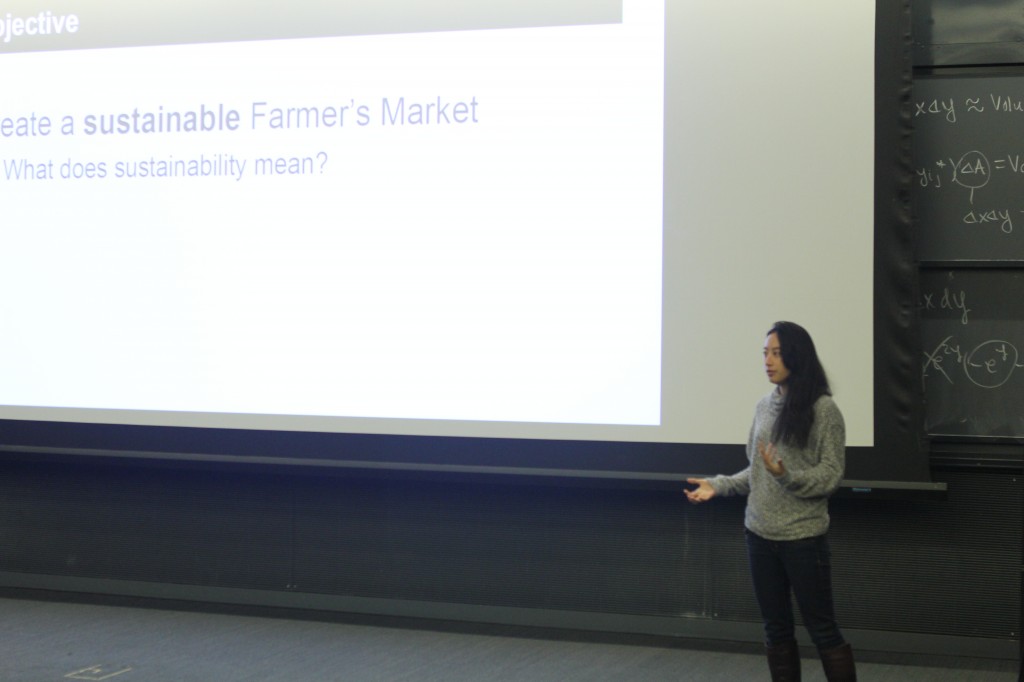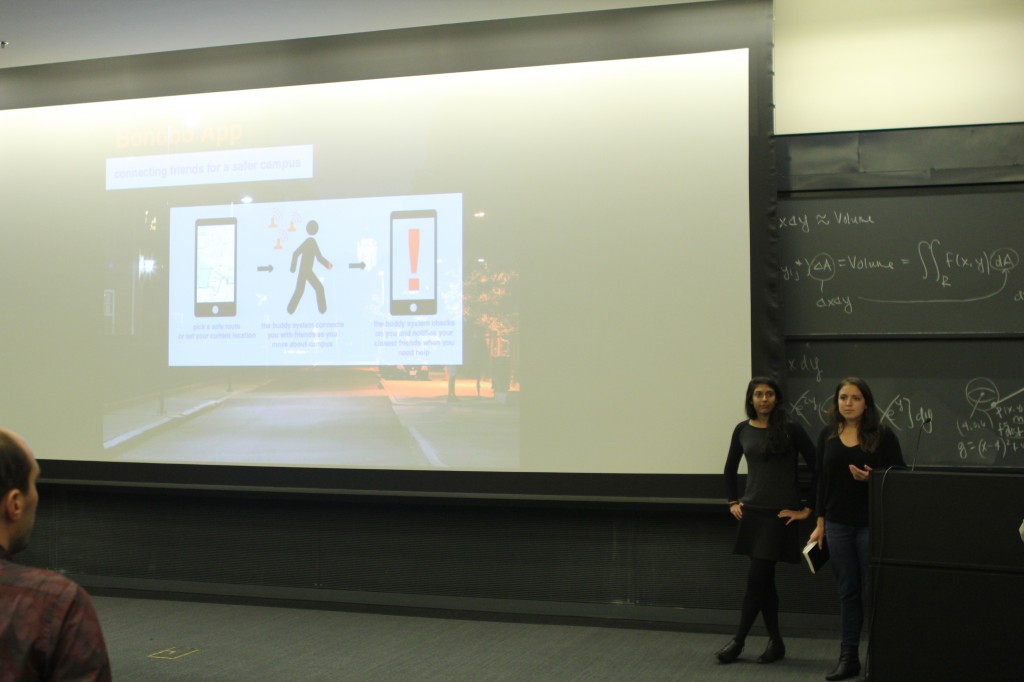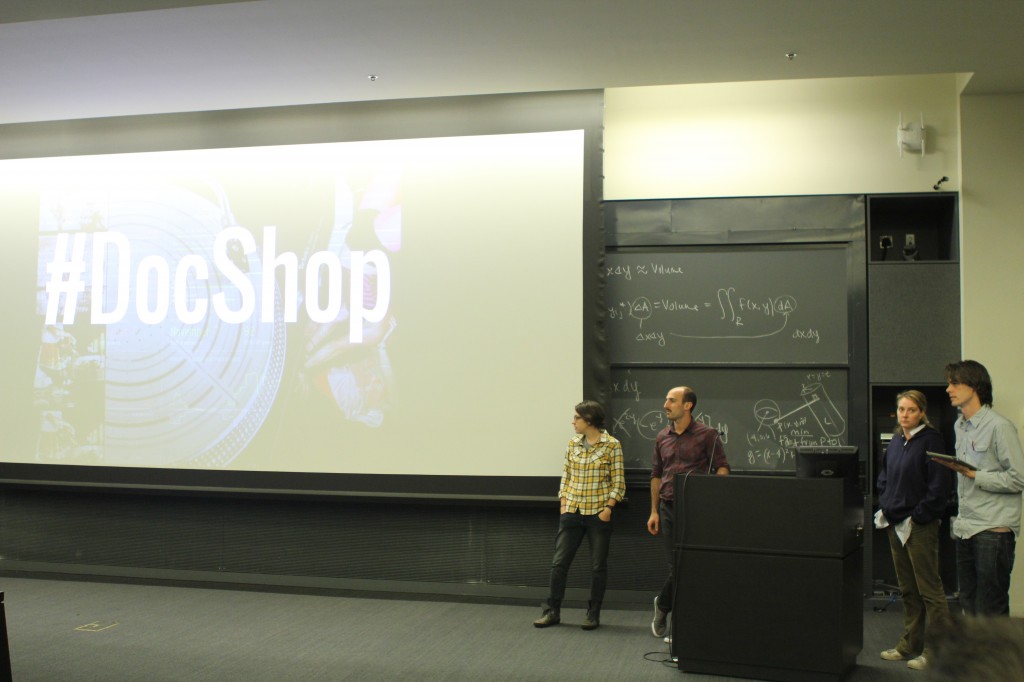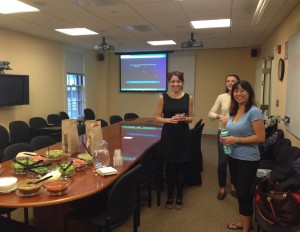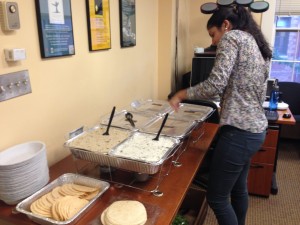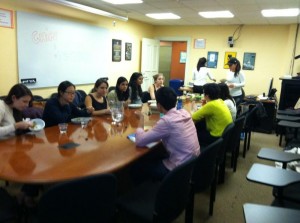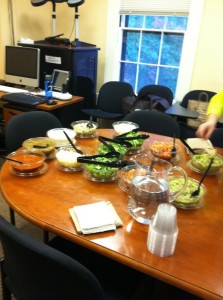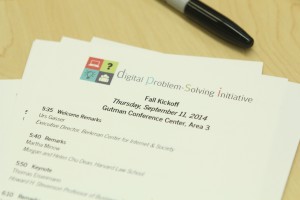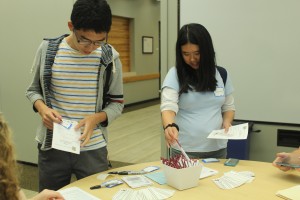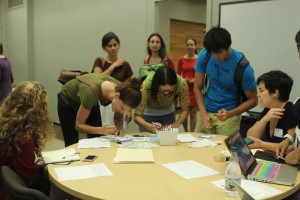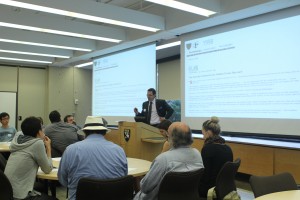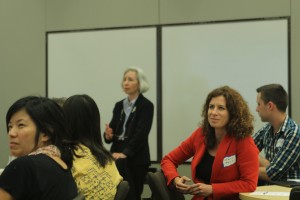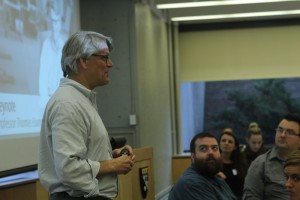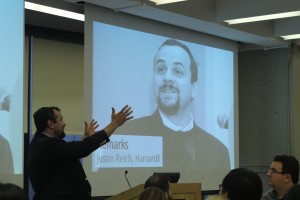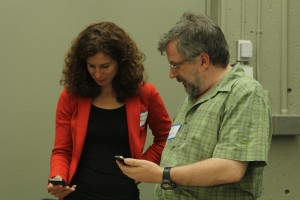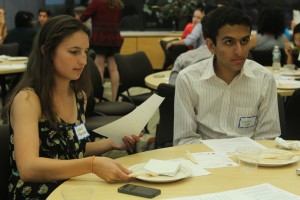On Thursday, December 4, members of the Digital Problem-Solving Initiative (DPSI) community gathered to hear from members of the seven DPSI teams. DPSI teams feature a diverse group of learners (students, faculty, fellows, and staff) working on projects addressing problems and opportunities across the university. DPSI participants have had the novel opportunity to enhance and cultivate competency in various digital literacies as teams engage with research, design, and policy relating to the digital world.
Each team had 5 minutes to present and 5 minutes of feedback from the DPSI community audience.
Farmer’s Market: Building A Self-Sustaining Harvard Farmer’s Market
Mentor: Margiana Peterson-Rockney (Food Literacy Project)
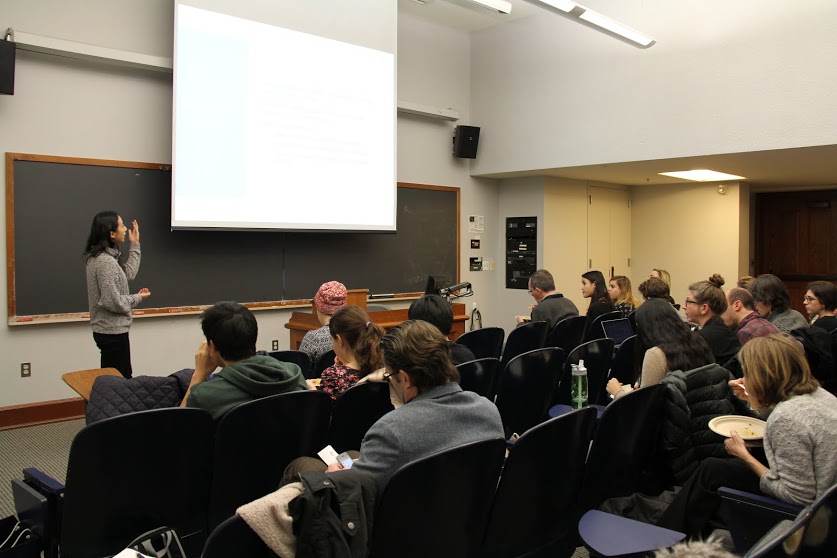
Cindy, the representative of the Farmer’s Market team, talked about how the team has honed its vision for their goals and future endeavors. They talked with the director of Harvard’s dining services to figure out another way to fulfill their original farmer’s market goals now that the farmer’s market is closed for the winter. The plan is to work with Food for Free, a non-profit that redistributes food from Harvard dining halls to places of need. In the Spring, the team will be evaluating and optimizing Food for Free’s operational model.
AccessEd: Accessibility in Online Education
Mentors: Chris Bavitz and Kira Hessekiel (Berkman Center for Internet and Society, Cyberlaw Clinic)

The AccessEd team talked about meeting with central individuals in the Harvard Office of Disability Services, the director of HarvardX, and the representative of a major technology vendor in the hopes of increasing accessibility in education. They’ve come to the conclusion that Harvard’s policies regarding accessibility are decentralized across schools, varying across the Business School, Kennedy School, Law School, and other Harvard schools. While cost is a major issue with any technological fix, the team hopes to increase awareness about accessibility in online education. They pointed out that there is a distinction between retroactively fitting existing courses and tools for those with disabilities and designing them from the beginning with these features in mind.
Big Data
Mentor: Jim Waldo (Chief Technical Officer, Harvard University )

Big Data talked about k-anonymization and statistical bias in application to the idea that anonymizing data sets changes their behavior. They ultimately want to figure out if it is possible to anonymize data in a way that preserves privacy and data integrity. Using data from five different HarvardX courses, they assessed the nature of the anonymized versus original data sets. While they have yet to figure out a statistical fix for the issue, they suggest that perhaps we can develop a new notion of what privacy means if we do not figure out the inherent statistical properties.
eyeData: Data Visualization and Exploratory Tools Applied to Real-World Research Data
Mentor: Mercé Crosas and Vito D’Orazio (Institute for Quantitative Social Science)
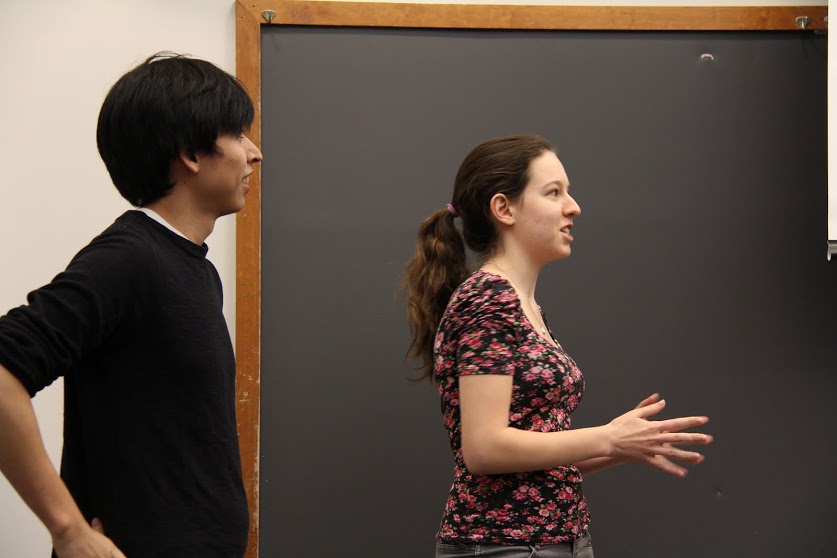
eyeData’s team included several coders who have been able to create visualizations of IQSS-Dataverse data. They’ve developed a website using Django and Jenkins, incorporating visualizations made using d3 of data processed using Panda. Their future work will involve further use of the Dataverse API and the addition of graphs and maps.
#DocShop: Interactive Documentary Workshop
Mentors: Matthew Battles, Cris Magliozi, and Jessica Yurkofsky (metaLAB)
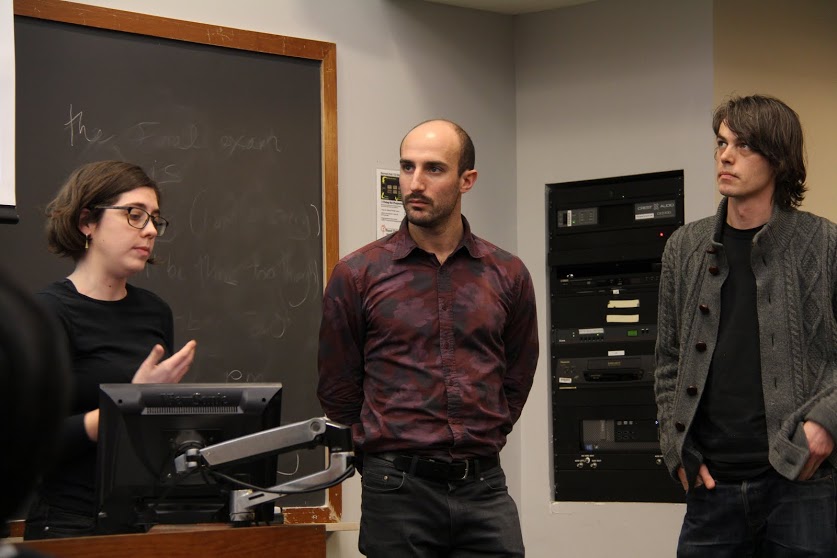
#DocShop team members continued talking about their year-long trajectory for uncovering a definition for interactive documentary film making and figuring out how to shift from audiences and spectators to actors. The group talked about their upcoming event at the Graduate School of Design featuring a location based documentary based on a trip to Lawrence, Massachusetts. They likened the experience of working with interactive documentary to film’s development in the 1920’s, suggesting that “there are no rules.”
Safe Campus: Dealing With Sexual Assault on Campus
Mentors: Diane Rosenfeld and Anisha Gopi (Harvard Law School)
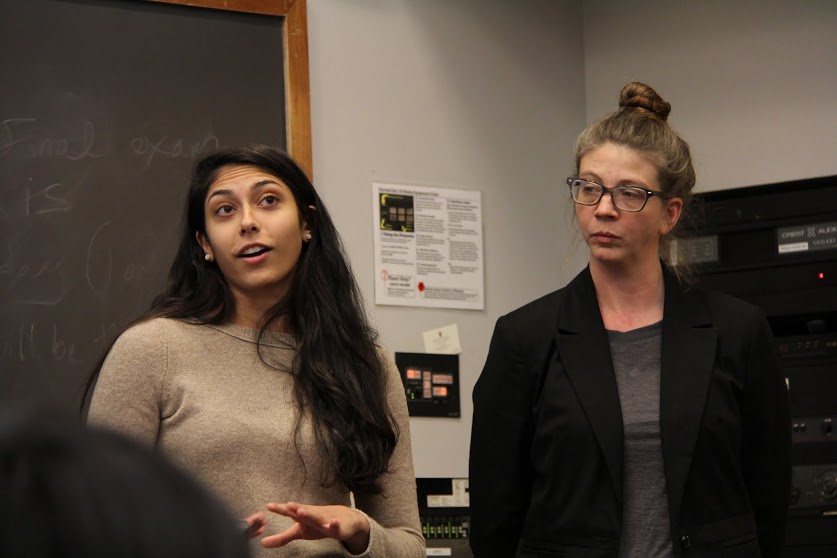
Members of the Safe Campus team talked about their app development, titled Bonobo. The basic framework for the app is that it creates a social network for helping individuals respond to urgent situations. In contrast to existing apps, their app is geared toward existing college students. In the future they hope to talk to sexual assault support groups on campus as well as certain social organizations to gauge what types of features would be well received by college students themselves.
OA2014: Open Access
Mentors: Peter Suber and Colin Lukens (Office of Scholarly Communication)
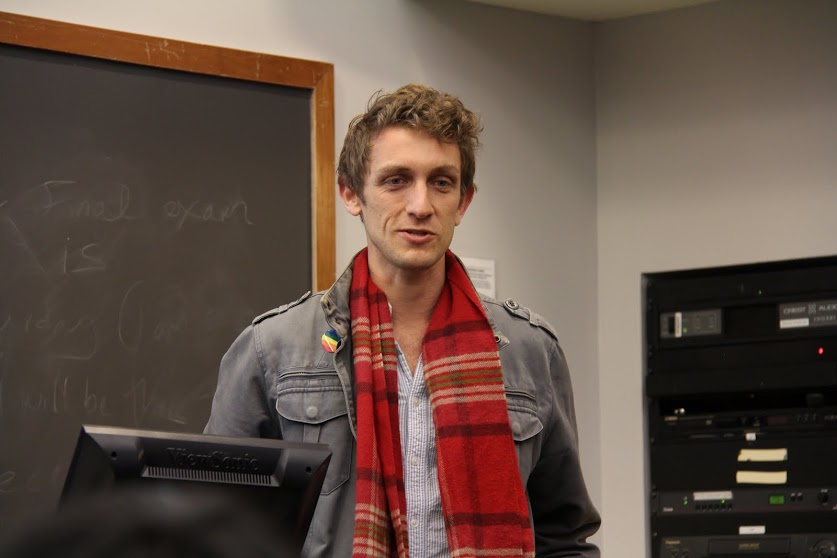
OA2014 has been working to figure out what the best nudge would be to get faculty to deposit their published materials. Since team members come from the Kennedy School, Graduate School of Design, and Business School (the schools that interestingly have the lowest usage of Harvard’s open access repository), the team members are focused on in-context immersion to see what would make faculty there most likely to deposit research papers into the open access repository. There is also the thought of spreading awareness to student researchers to deposit into the repository, which may then inform their mentors and faculty advisors to do the same.
The evening ended with a 20 minute breakout session where teams could mingle and offer insight into ideas and methods for future work. Keep up to date with DPSI team progress on the blog, and be sure to keep an eye out for how to get involved with DPSI next semester!
Check out slides from each group’s presentation here: [dpsi] Fall Slide Deck


